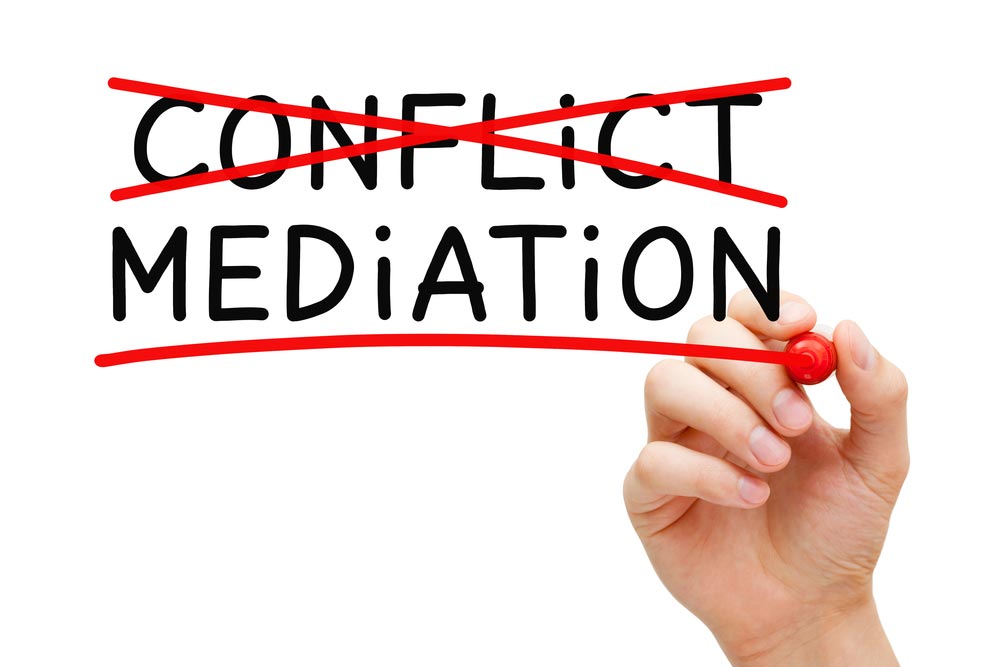Texas mediation is a much less formal process than standard litigation, but the process through which issues are resolved involves several different stages that can help all parties come up with a reasonable compromise. Pursuing a lawsuit can be expensive. But by going through the mediation process, two or more people can resolve a dispute in an informal setting with the help of a neutral party (who is called “the mediator”). This can help everyone involved to avoid the more expensive litigation process.

The Role of the Mediator
Most mediators are trained in resolving conflicts, though the level of a mediator’s training and experience can vary widely. The same is also true for the cost of the mediator. Hiring a retired judge to be a private mediator can cost you a steep hourly rate, but a volunteer attorney might be available through a court-sponsored settlement conference program or a local small claims court for free.
Unlike a judge or arbitrator, the mediator isn’t there to decide the outcome of a case. He or she is there to help the disputants come up with a solution to their problem by encouraging them to:
- Identify the strengths and weaknesses of their case.
- Understand that accepting less than what is expected is part of coming up with a fair settlement.
- Agree on a reasonable solution.
The main goal of all involved parties is to come up with a solution that they can live with and trust. Because the mediator doesn’t have the authority to make a decision, nothing will be decided unless both parties agree to it.
Types of Issues Resolved Through Mediation
Almost any type of issue can be resolved through mediation. Many courts will require you to go through some type of informal dispute resolution process (such as mediation or arbitration) before the litigation process can move forward. They do it because it has been proven to work.
Some of the cases that can be resolved through mediation include the following:
- Personal injury cases.
- Small business disputes.
- Family law issues.
- Real estate disputes.
- Breaches of contract.
The time it will take to resolve these disputes will depend on the complexity of each case. If they’re somewhat straightforward, they can usually be resolved in half a day. But more complicated cases will require a full day of mediation, with the negotiation continuing after the mediation has ended. If the mediation process doesn’t settle the case, either side can file a lawsuit or continue with the mediation process.
The Stages of Mediation
Texas mediation isn’t as formal as a trial or arbitration, but it does have some sort of structure. It takes place in several stages that are put in place for the purpose of getting results. Most mediation cases take place in the following manner:
- The mediator’s opening statement — After all the disputants are seated at a table, the mediator introduces everyone, explains the goal and rules of the mediation, and encourages each side to work toward a reasonable settlement.
- The disputants’ opening statements — Each party is invited to describe the nature of the dispute and its consequences (financial or otherwise). The mediator may also give ideas about how these issues can be resolved.
- A joint discussion — The mediator might encourage parties to directly respond to the opening statements (depending on their receptivity) so the issues can be further defined.
- Private caucuses — This will give each party a chance to meet privately with the mediator. Each side will be placed in a separate room, where the mediator will discuss the strengths and weaknesses of each position and exchange offers. This stage will continue as needed during the time in which it is allowed and makes up most of the mediation process.
- Joint negotiation — After the caucuses have been completed, the mediator might bring the parties together so they can negotiate directly. But it doesn’t happen very often. Mediators won’t bring parties back together until a settlement is reached or the amount of allotted time for the mediation has ended.
- Closure — If the parties have reached an agreement, the mediator will most likely put all the provisions in writing and ask each side to sign a written summary of the agreement. If neither party has reached an agreement, the mediator will help them to determine whether meeting at a later date would be beneficial.
If you’re looking for someone in Corpus Christi to help you mediate your dispute, be sure to reach out to Gale Law Group.
